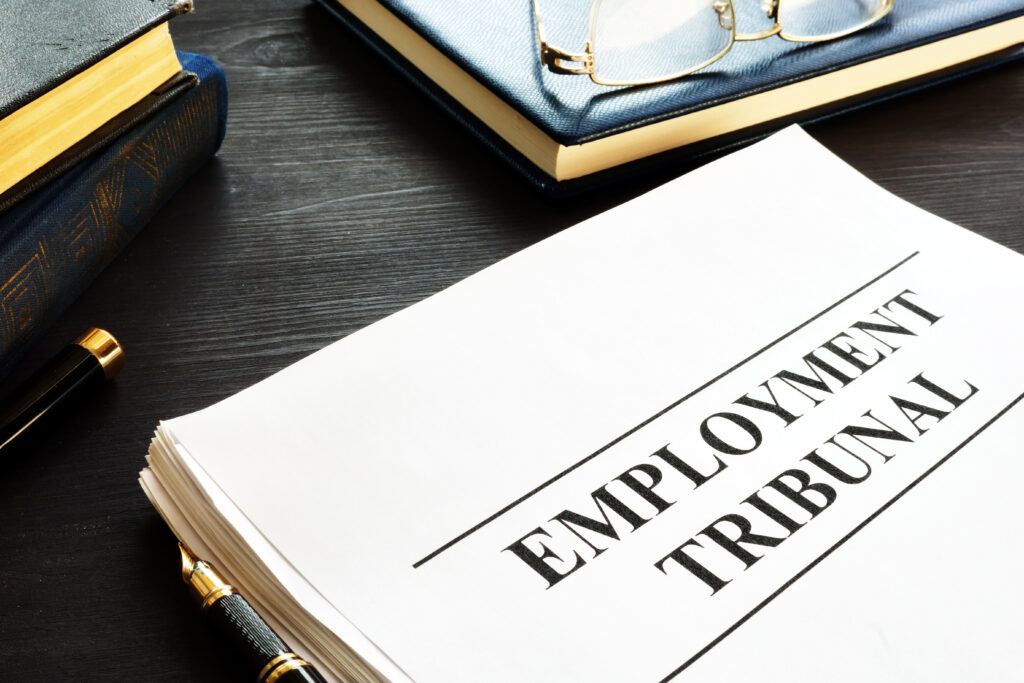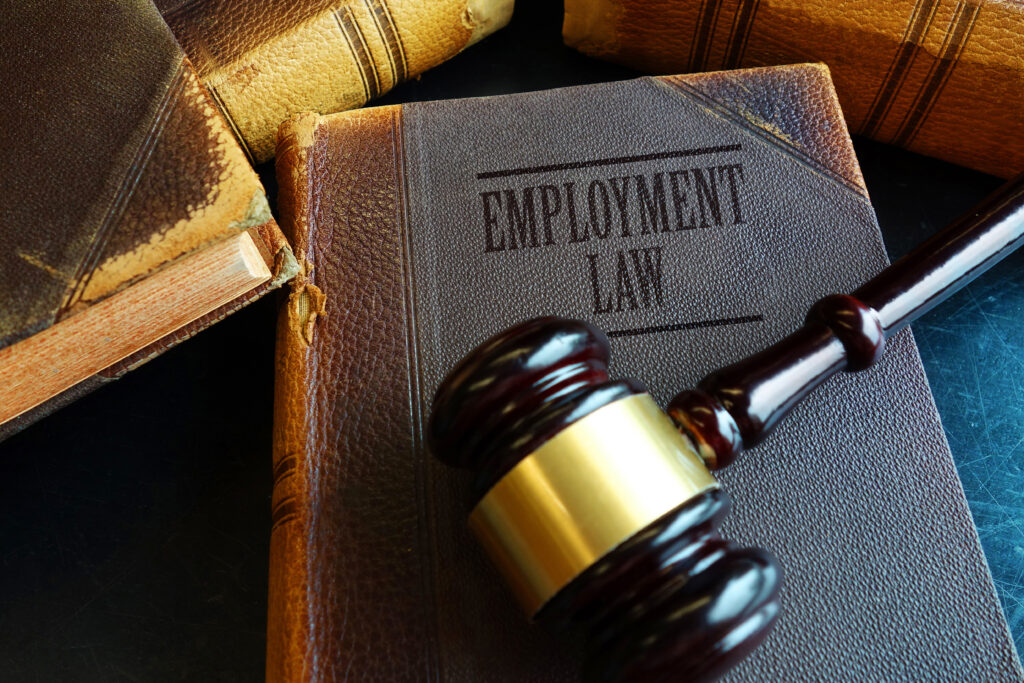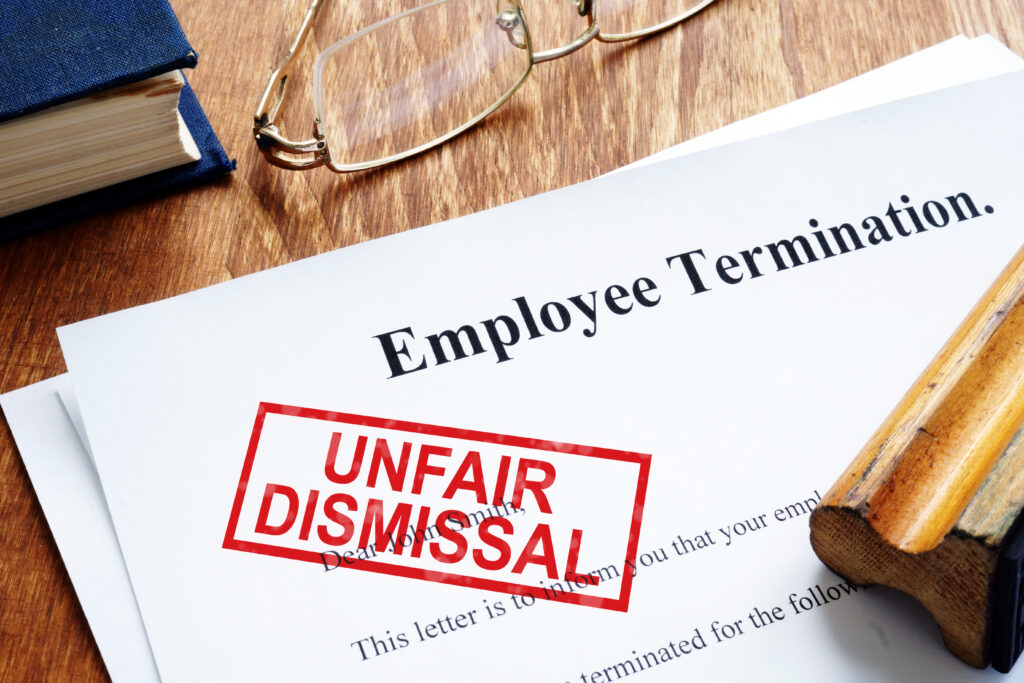Employment Disputes
Our Employment Law team will be able to assist and advise on the process that you should follow if the employer finds itself needing to discipline one of its employees.
Employment Disputes
Whether it is advice on raising a grievance, being involved in a disciplinary or capability process, long term sickness absence, performance improvement plan, adjustment to the workplace or working practices, warnings or even the termination of your employment, we can advise and support you throughout.
Our team of employment lawyers have significant experience in advising on workplace disputes and can provide you with practical and pragmatic advice to help and support you with resolving any dispute that you have with your employer.
Dismissals
Losing your job or having to be a part of someone losing their job, for whatever reason, can be difficult and stressful. Herrington Carmichael’s Employment Law Solicitors can provide you with support and advise you on your rights arising from the termination of employment.
Working with your business
Bringing an employment relationship to an end can be a difficult process that, if done incorrectly, can give rise to various claims.
Working with individuals
If you are an individual and feel your employer has not got a fair reason to dismiss you or has failed to follow a fair process when dismissing you, we will listen to the background to your situation and advise you on your employment rights.
Each dismissal is different but our team of expert employment lawyers are experienced in dealing with all types of dismissal including due to conduct, poor performance or capability, ill health, illegality or redundancy or some other substantial reason.
Unfair dismissal can be a complicated area of the law. Our Employment team can advise you on whether or not you have an employment claim, the options that are open to you and what the implications of those options may be. We can draw on our experience to advise you on the strengths of your claims and the necessary tactics to engage either directly with your employer or through an Employment Tribunal, High Court or County Court claim.
Discrimination & Equality
In the UK, individuals are protected against a variety of different types of discrimination under the Equality Act 2010. The different types of discrimination are:
- Direct Discrimination
- Indirect Discrimination
- Harassment
- victimisation
- Discrimination Arising from Disability
- Associative Discrimination
- Perceptive Discrimination
The protected characteristics:
- Age
- Disability
- Gender Reassignment
- Marriage and Civil Partnership
- Pregnancy and Maternity
- Race
- Religion or Belief
- Sex
- Sexual Orientation
All job applicants, employees, workers and contractors are protected against discrimination at work. If you feel you are being treated poorly at work our team of specialist employment lawyers can guide you through this complex area and advise you on your rights and options.
Employment Rights
Employment status plays a crucial role in defining an individual’s rights and entitlements in the workplace. Determining employment status can, however, be challenging. If you are seeking clarity or assistance in relation to your employment status, our experienced team can assist you. With our expertise in employment law, we are well-equipped to assist in identifying your employment and resolving disputes that may arise in this area.
In the UK, there are three main types of employment status:
- Employee
- Worker
- Self-Employed
Determining someone’s status relies on several key legal tests.
Grievance Procedures
We have a number of specialist Employment Lawyers within our Employment Team that will be able to assist and advise on the process that you should follow should the Company receive a grievance from one of its employees.
Grievances are formal complaints that are raised by employees that are unhappy with the way that they have been treated. A grievance is normally a precursor to an employee resigning from the Company and therefore must be addressed in a fair and considerate manner. Dealing with a grievance can be distressing for all parties involved and advice should be sought.
Our Employment Lawyers have extensive experience in dealing with grievances and will be able to advise on the steps that you need to follow to ensure that you deal with all parties involved within the grievance fairly.
Performance Management
A performance improvement plan “PIP” is commonly used to manage underperformance of an employee. A PIP should always be set out in writing and will ideally identify where you are underperforming, the level of improvement expected, the time frame for improvement and any assistance that will be provided.
Can I be dismissed under a performance improvement plan?
It is possible to be dismissed for poor performance. However, prior to dismissal your employer should have followed a detailed process and provided you with opportunity to improve.
If the process is not genuine, for example the employer fails to provide realistic targets, the allegations were unfounded or you were not provided with sufficient time in order to improve, it is likely that any such dismissal would be deemed to be an unfair dismissal.
Can I be demoted?
At the end of the performance process, it is possible for the employer to demote you as an alternative to dismissal, providing that they have the ability to do so within their policies and procedures and they have followed a fair performance improvement process and the appropriate warnings have been provided as part of the process.
Sickness & Absence
If you have been employed for more than 28 weeks, have been off sick for more than four days and earn the amount specified in the Regulations, and you have notified your employers in the appropriate manner, you will be entitled to statutory sick pay (‘SSP’). Your employer may also pay additional sick pay, which will be identified in your contract of employment.
SSP is paid for a period of 28 weeks. Again, your employer may have an enhanced policy and pay sick pay for a longer period. Again, this will be identified in your contract of employment or staff handbook.
Do I need to attend an appointment with Occupational Health?
There is not any legal requirement for you to attend an appointment with occupational health however, there may be a clause in your contract of employment which requires you to cooperate with occupational health assessments. If you fail to consent/or attend your employer may consider implementing disciplinary procedures on the grounds that you have failed to follow a reasonable management instruction.
Can I be dismissed whilst off sick?
Yes, it is possible for an employer to dismiss you whilst you are on sick leave. However, for it to be a fair dismissal, the Company will have had to follow a fair procedure to understand your illness, the affects that it has on your ability to work, whether any changes would assist and whether there is the possibility for you to return to work in the near future. If the procedure is not followed correctly, and you are considered to be disabled for the purposes of the Equality Act, you may be able to bring a claim for unfair dismissal and disability discrimination.
Dismissals
Losing your job or having to be a part of someone losing their job, for whatever reason, can be difficult and stressful. Herrington Carmichael’s Employment Law Solicitors can provide you with support and advise you on your rights arising from the termination of employment.
Working with your business
Bringing an employment relationship to an end can be a difficult process that, if done incorrectly, can give rise to various claims.
Working with individuals
If you are an individual and feel your employer has not got a fair reason to dismiss you or has failed to follow a fair process when dismissing you, we will listen to the background to your situation and advise you on your employment rights.
Each dismissal is different but our team of expert employment lawyers are experienced in dealing with all types of dismissal including due to conduct, poor performance or capability, ill health, illegality or redundancy or some other substantial reason.
Unfair dismissal can be a complicated area of the law. Our Employment team can advise you on whether or not you have an employment claim, the options that are open to you and what the implications of those options may be. We can draw on our experience to advise you on the strengths of your claims and the necessary tactics to engage either directly with your employer or through an Employment Tribunal, High Court or County Court claim.
Discrimination & Equality
In the UK, individuals are protected against a variety of different types of discrimination under the Equality Act 2010. The different types of discrimination are:
- Direct Discrimination
- Indirect Discrimination
- Harassment
- victimisation
- Discrimination Arising from Disability
- Associative Discrimination
- Perceptive Discrimination
The protected characteristics:
- Age
- Disability
- Gender Reassignment
- Marriage and Civil Partnership
- Pregnancy and Maternity
- Race
- Religion or Belief
- Sex
- Sexual Orientation
All job applicants, employees, workers and contractors are protected against discrimination at work. If you feel you are being treated poorly at work our team of specialist employment lawyers can guide you through this complex area and advise you on your rights and options.
Employment Rights
Employment status plays a crucial role in defining an individual’s rights and entitlements in the workplace. Determining employment status can, however, be challenging. If you are seeking clarity or assistance in relation to your employment status, our experienced team can assist you. With our expertise in employment law, we are well-equipped to assist in identifying your employment and resolving disputes that may arise in this area.
In the UK, there are three main types of employment status:
- Employee
- Worker
- Self-Employed
Determining someone’s status relies on several key legal tests.
Grievance Procedures
We have a number of specialist Employment Lawyers within our Employment Team that will be able to assist and advise on the process that you should follow should the Company receive a grievance from one of its employees.
Grievances are formal complaints that are raised by employees that are unhappy with the way that they have been treated. A grievance is normally a precursor to an employee resigning from the Company and therefore must be addressed in a fair and considerate manner. Dealing with a grievance can be distressing for all parties involved and advice should be sought.
Our Employment Lawyers have extensive experience in dealing with grievances and will be able to advise on the steps that you need to follow to ensure that you deal with all parties involved within the grievance fairly.
Performance Management
A performance improvement plan “PIP” is commonly used to manage underperformance of an employee. A PIP should always be set out in writing and will ideally identify where you are underperforming, the level of improvement expected, the time frame for improvement and any assistance that will be provided.
Can I be dismissed under a performance improvement plan?
It is possible to be dismissed for poor performance. However, prior to dismissal your employer should have followed a detailed process and provided you with opportunity to improve.
If the process is not genuine, for example the employer fails to provide realistic targets, the allegations were unfounded or you were not provided with sufficient time in order to improve, it is likely that any such dismissal would be deemed to be an unfair dismissal.
Can I be demoted?
At the end of the performance process, it is possible for the employer to demote you as an alternative to dismissal, providing that they have the ability to do so within their policies and procedures and they have followed a fair performance improvement process and the appropriate warnings have been provided as part of the process.
Sickness & Absence
If you have been employed for more than 28 weeks, have been off sick for more than four days and earn the amount specified in the Regulations, and you have notified your employers in the appropriate manner, you will be entitled to statutory sick pay (‘SSP’). Your employer may also pay additional sick pay, which will be identified in your contract of employment.
SSP is paid for a period of 28 weeks. Again, your employer may have an enhanced policy and pay sick pay for a longer period. Again, this will be identified in your contract of employment or staff handbook.
Do I need to attend an appointment with Occupational Health?
There is not any legal requirement for you to attend an appointment with occupational health however, there may be a clause in your contract of employment which requires you to cooperate with occupational health assessments. If you fail to consent/or attend your employer may consider implementing disciplinary procedures on the grounds that you have failed to follow a reasonable management instruction.
Can I be dismissed whilst off sick?
Yes, it is possible for an employer to dismiss you whilst you are on sick leave. However, for it to be a fair dismissal, the Company will have had to follow a fair procedure to understand your illness, the affects that it has on your ability to work, whether any changes would assist and whether there is the possibility for you to return to work in the near future. If the procedure is not followed correctly, and you are considered to be disabled for the purposes of the Equality Act, you may be able to bring a claim for unfair dismissal and disability discrimination.
FAQs
How do I raise a grievance?
If you have a grievance or complaint to raise you should raise this to your line manager or the HR Department in writing. Your employer may have a grievance policy which will provide details of who the grievance should be addressed to and how to raise concerns internally. In some circumstances it may be appropriate to raise a complaint informally in the first instance.
What should my employer do if I raise a grievance?
Once your grievance has been raised your employer should follow their grievance procedure. This will likely include appointing an impartial manager to chair the process, conduct an investigation into the grievance and reach a decision on the same. If your employer does not have a process , they should as a bare minimum follow the ACAS Code of Practice.
What is the potential outcome of a grievance?
Once a grievance has been investigated and any evidence considered an employer will have to give an outcome on the findings. It could be that it is decided that no further action is required or alternatively that a decision is made to uphold all or part of the grievance. If you are not content with the outcome you will usually have the right to appeal the grievance outcome.
Why might an employee bring a grievance
An employee is likely to raise a grievance if they are unhappy or dissatisfied about something that has occurred in the workplace. A grievance will normally relate to the treatment that the employee has received from their managers or colleagues.
I have been invited to a disciplinary hearing, can I take someone?
Yes, you are legally entitled to take a work colleague or a Trade Union Representative.
What are the potential outcomes of a disciplinary process?
Following a disciplinary process your employer may find that you are guilty of misconduct. This could result in a first or final written warning being provided. However, if you have previously received a warning or have committed an act of gross misconduct your employment may be terminated.
What can I do if I am dismissed?
If you have been employed for more than two years you will be entitled to appeal the decision. If you wish to do so, you should put your appeal in writing and send it to the HR department or the person named in the employer’s disciplinary policy.
I have been placed on a performance improvement plan, what can I expect?
A performance improvement plan “PIP” is commonly used to manage underperformance of an employee. A PIP should always be set out in writing and will ideally identify where you are underperforming, the level of improvement expected, the time frame for improvement and any assistance that will be provided.
Can I be dismissed under a performance improvement plan?
It is possible to be dismissed for poor performance. However, prior to dismissal your employer should have followed a detailed process and provided you with opportunity to improve.
If the process is not genuine, for example the employer fails to provide realistic targets, the allegations were unfounded, or you were not provided with sufficient time in order to improve, it is likely that any such dismissal would be deemed to be an unfair dismissal.
Can I be demoted?
At the end of the performance process, it is possible for the employer to demote you as an alternative to dismissal, providing that they have:
- The ability to do so within their policies and procedures
- Followed a fair performance improvement process
- The appropriate warnings have been provided as part of the process
Will I get paid whilst I am off sick?
If you have been employed for more than 28 weeks, have been off sick for more than four days and earn the amount specified in the Regulations, and you have notified your employers in the appropriate manner, you will be entitled to statutory sick pay (‘SSP’). Your employer may also pay additional sick pay, which will be identified in your contract of employment.
SSP is paid for a period of 28 weeks. Again, your employer may have an enhanced policy and pay sick pay for a longer period. Again, this will be identified in your contract of employment or staff handbook.
Do I need to attend an appointment with Occupational Health?
There is not any legal requirement for you to attend an appointment with occupational health however, there may be a clause in your contract of employment which requires you to cooperate with occupational health assessments. If you fail to consent or attend your employer may consider implementing disciplinary procedures on the grounds that you have failed to follow a reasonable management instruction.
Can I be dismissed whilst off sick?
Yes, it is possible for an employer to dismiss you whilst you are on sick leave. However, for it to be a fair dismissal, the Company will have had to follow a fair procedure to understand your illness, the affects that it has on your ability to work, whether any changes would assist and whether there is the possibility for you to return to work in the near future. If the procedure is not followed correctly, and you are considered to be disabled for the purposes of the Equality Act, you may be able to bring a claim for unfair dismissal and disability discrimination.
Legal Insight
Meet the Team
Related expertise
Best Law Firms 2024
Herrington Carmichael has once again been named in the Times Best Law Firms. We were first listed in 2023 and have once again made the Best Law Firms list for 2024.














